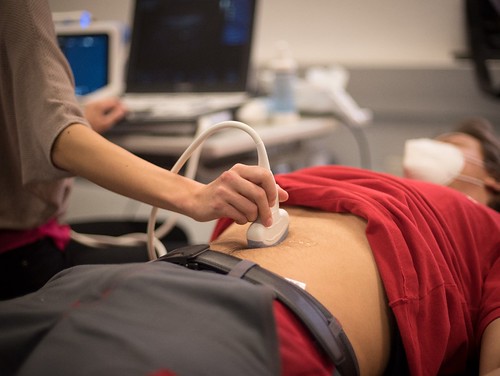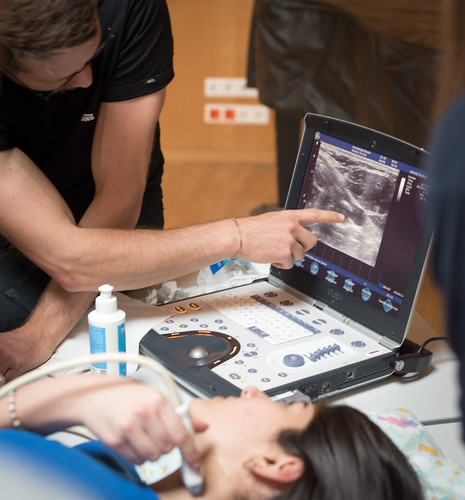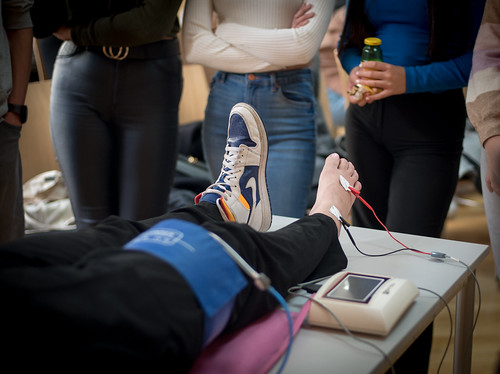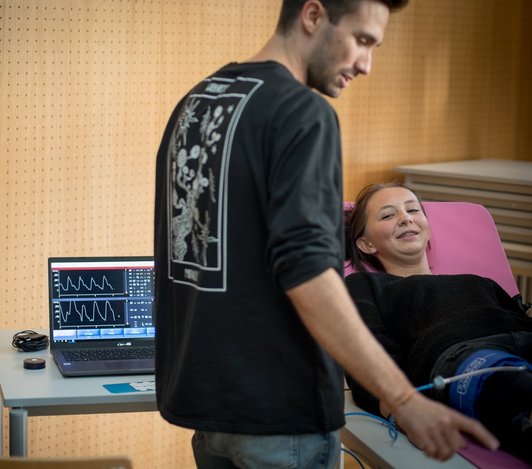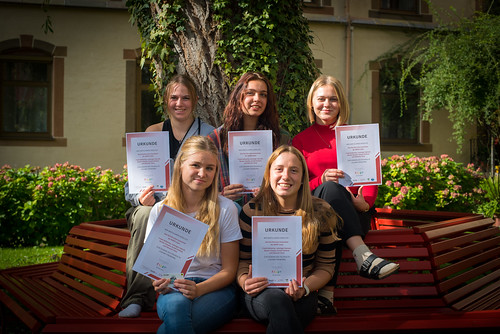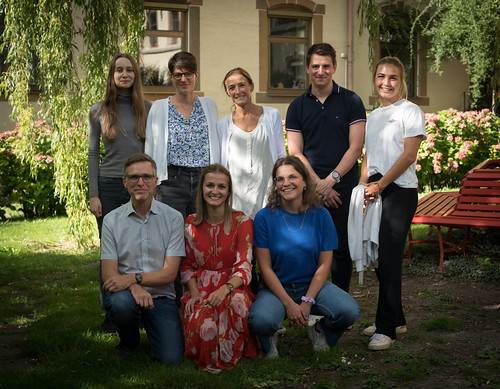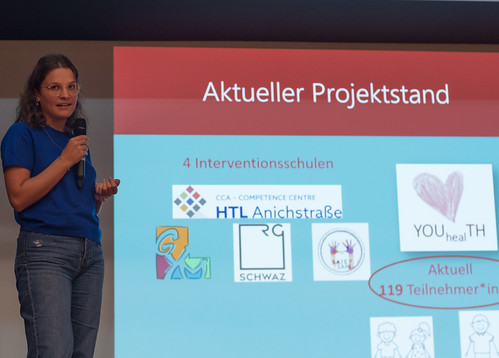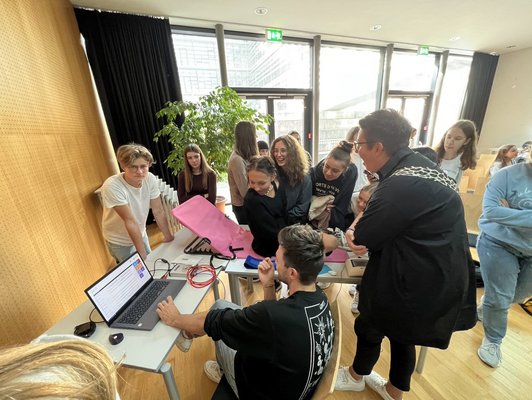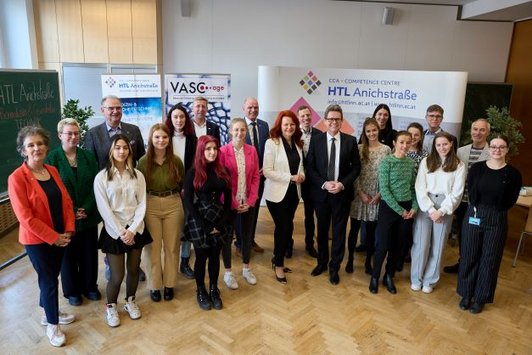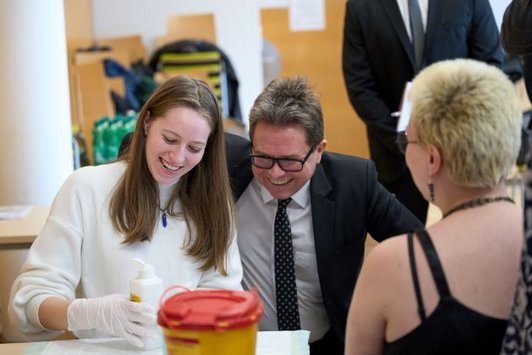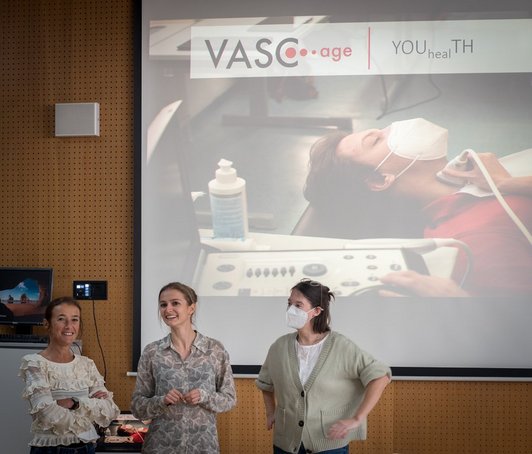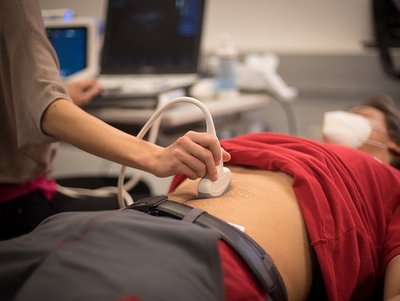YOUhealTH
A participative approach for health promotion in students
“YOUhealTH” is a participatory health promotion project focused on nutrition and physical activity to support cardiovascular health. It was carried out in collaboration with students and teachers at seven schools in Tyrol, Austria.
A core team of 68 student researchers recruited classmates and one parent each at their respective schools, coordinated and conducted medical assessments, and analyzed the collected data — all with the active support of 10 participating teachers. In total, 81 students and 83 parents took part in the examinations.
Risk factors for cardiovascular disease were assessed, including blood pressure, blood lipids, glucose metabolism, body mass index, dietary and physical activity behavior, and smoking habits. In addition, medical parameters such as carotid intima-media thickness (via ultrasound), pulse wave velocity (as a measure of arterial stiffness), and liver ultrasound were recorded — at both the beginning and end of the project.
Four of the seven schools developed targeted health promotion programs to sustainably improve nutrition and/or physical activity among participants. The results of these intervention groups were compared with data from the remaining three schools, which did not implement any measures and thus served as a control group.
“YOUhealTH” was not only medically and scientifically relevant but also successful in terms of sustainability and education: It provided early stage researchers — including two PhD candidates — with valuable opportunities to gain experience in project management, teaching, participatory and clinical research, and public health. The project also led to a master’s thesis, several graduation thesis of pupils, teaching assignments, the development of educational materials, and a strong connection between research and practice.
At the student level, the impact was also clearly felt: They learned about cardiovascular diseases, risk factors, and medical examination techniques, gained hands-on experience using medical devices, and developed a deeper understanding of scientific work. Many reported feeling motivated to adopt a healthier lifestyle and shared their knowledge within their families and social circles. In some cases, the project even inspired future scientific careers.
The long-term impact of the project goes beyond scientific findings: It strengthened health education and prevention in schools, produced educational materials, experiment kits, and interactive content that can continue to be used via the klasse!forschung platform.
“YOUhealTH” demonstrates that participatory health research with adolescents is not only feasible but also effective – both in fostering individual health literacy and in developing sustainable prevention strategies. It offers a replicable model that can be applied in other regions or disciplines and has the potential to actively shape the future public health landscape.
This project is already completed.
Publikation
-
2025-12-19
-
2025-12-19
-
2025-12-19
 Schools
Schools
 Partners from Economy and Society
Partners from Economy and Society
 Scientific institutions
Scientific institutions

